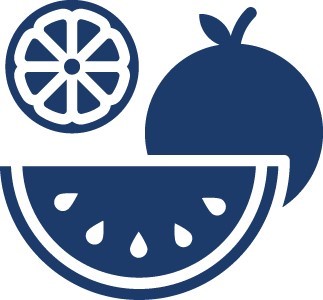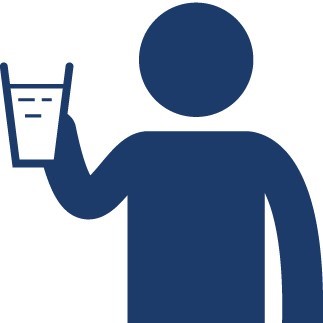1. Load up on fruits and veggies
 اضافة اعلان
اضافة اعلان
You know fruits and
vegetables are good for you, but did you know they should fill half of your
plate at every meal? That is what the
Academy of Nutrition and Dietetics recommends, and for good reason: packed with vitamins, minerals, and fiber,
fruits and vegetables make you less likely to get heart disease, high blood
pressure, and some cancers.
2. Choose better fats

Saturated and trans fats can
raise your bad cholesterol level and your risk of heart disease. By cutting
back on animal-based foods like butter, bacon, and untrimmed meats, as well as
pantry staples like cookies and crackers, you can keep these at bay.
Eating less bad fats can be as easy as switching
from whole milk to fat-free milk, eating a turkey burger instead of a beef
burger, and switching from peanut butter to a lower-fat nut butter.
You do need some fat, of course. Plant-based foods
like olive oil, nuts, seeds, and avocados contain healthy fats that are
essential for energy and cell growth. To add more good fats to your diet, snack
on almonds instead of chips, cook with olive oil instead of butter, and top
your sandwich with a slice of avocado instead of cheese.
Also, some fish (such as salmon) is high in
good-for-you Omega-3 fatty acids.
3. Drink water, not lattes

If most of what you are
drinking every day is not plain water (think soda, coffee drinks, sports
drinks, and juices), you are probably overloading on added calories and sugar.
People think juice bars are great, but if you are having a jumbo, you are not
doing yourself a favor.
Water, on the other hand, goes a long way in
boosting health. Every cell in your body needs it to work properly. Water also
helps your digestion.
Trade sugary drinks for water. Aim for about six to
eight glasses a day. To help reach that goal, start and end your day with a
tall glass of water and keep a water bottle with you during the day.
Need more flavor? Drop a slice of lemon or lime into
your glass.
4. Eat more fiber

Want to reduce belly fat,
have more energy, and lower your risk of heart disease, type 2 diabetes, and
certain types of cancer? Simply bump up your fiber intake.
Fiber-rich foods like fruits, vegetables, whole
grains, and beans can also lower your cholesterol and boost digestion.
5. Keep portions in check

Reaching for a smaller plate
may be the easiest thing you can do for a healthier diet.
Portion control is good for many different things,
whether it is obesity, high cholesterol, or diabetes. If you are trying to lose
weight, portion control is key.
More strategies for keeping your portions in check:
eat from a plate (not out of a bag); avoid nibbling in front of the TV; buy
single-serve portions; eat slowly, enjoying the flavors and aromas of every
bite.
Read more Health







